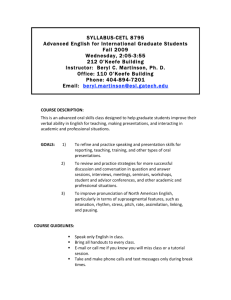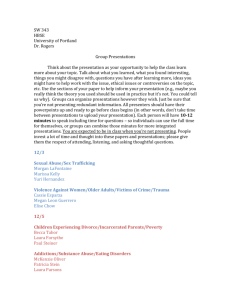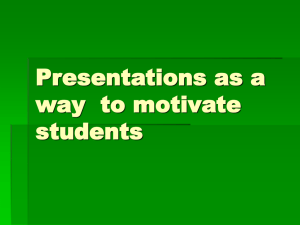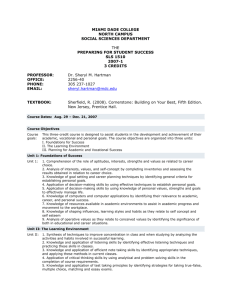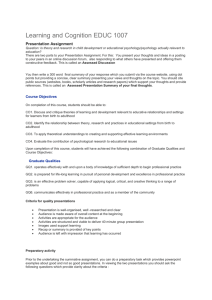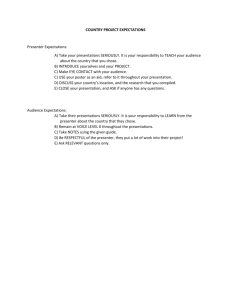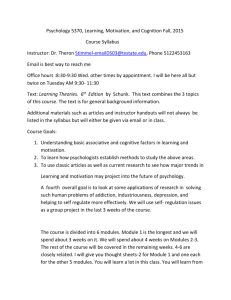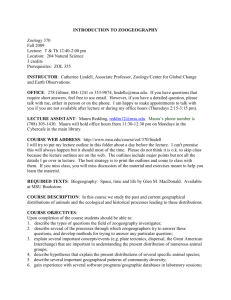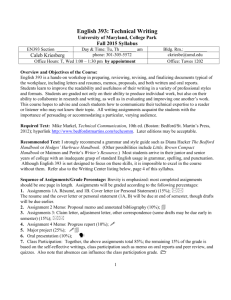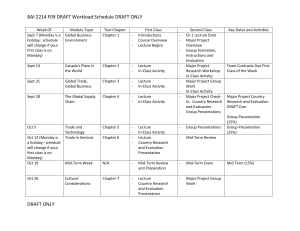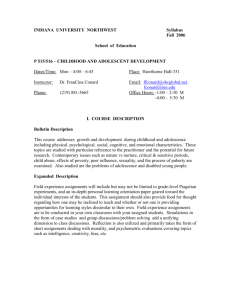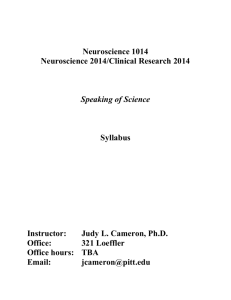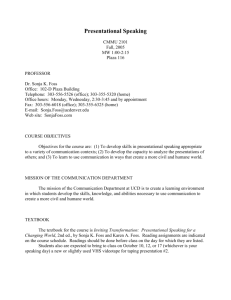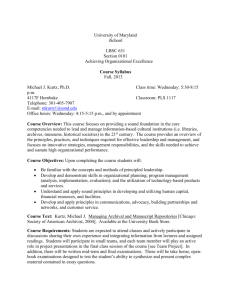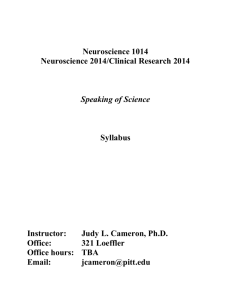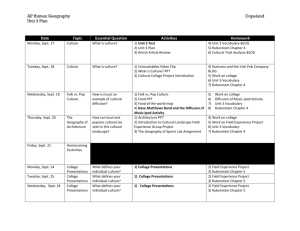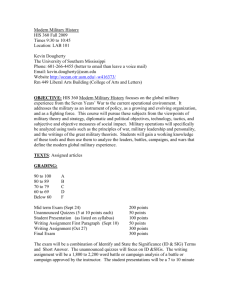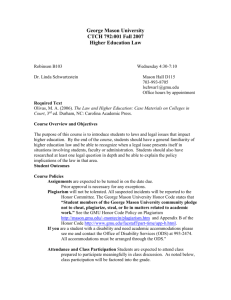presentations historian
advertisement
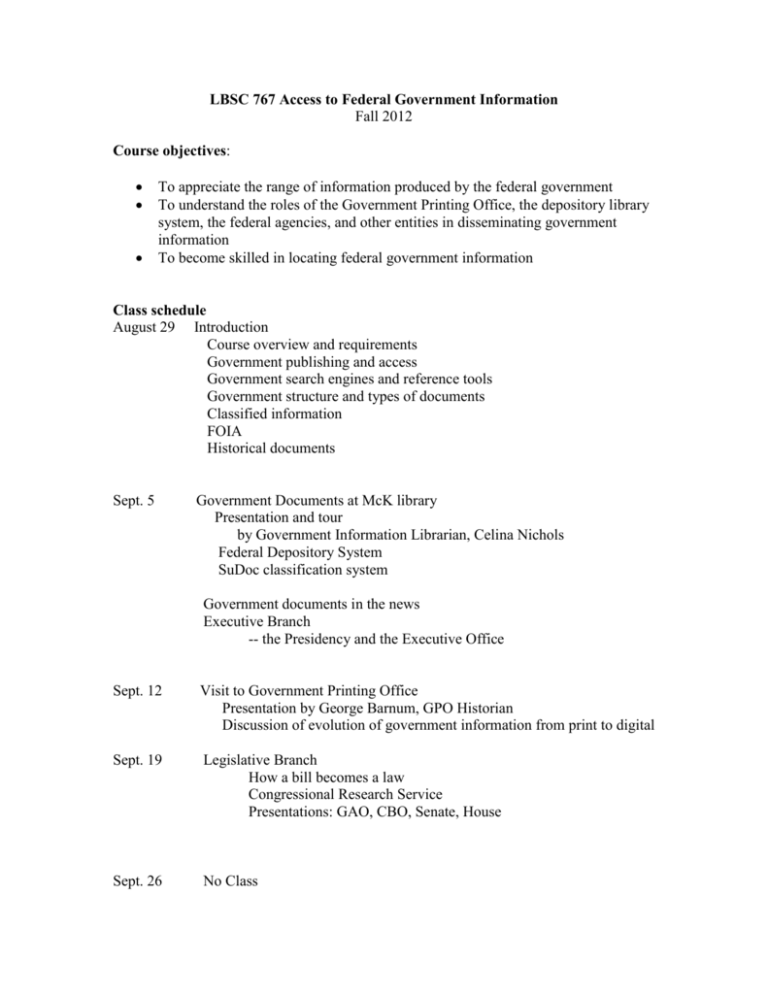
LBSC 767 Access to Federal Government Information Fall 2012 Course objectives: To appreciate the range of information produced by the federal government To understand the roles of the Government Printing Office, the depository library system, the federal agencies, and other entities in disseminating government information To become skilled in locating federal government information Class schedule August 29 Introduction Course overview and requirements Government publishing and access Government search engines and reference tools Government structure and types of documents Classified information FOIA Historical documents Sept. 5 Government Documents at McK library Presentation and tour by Government Information Librarian, Celina Nichols Federal Depository System SuDoc classification system Government documents in the news Executive Branch -- the Presidency and the Executive Office Sept. 12 Visit to Government Printing Office Presentation by George Barnum, GPO Historian Discussion of evolution of government information from print to digital Sept. 19 Legislative Branch How a bill becomes a law Congressional Research Service Presentations: GAO, CBO, Senate, House Sept. 26 No Class October 3 Guest Lecturer: Jennifer Klang, Head of Reference Services, Dept. of the Interior Library Legislative History Tour of Interior Department Library Oct. 10 Statistics Census and the American Community Survey Other statistics from the Federal Government Oct. 17 Economics Presentations: Commerce, Labor, Treasury, Agriculture, Transportation, Federal Reserve Oct. 24 Science, Consumer, and Medical Information Patents/trademarks Presentations: Energy, NASA, EPA, NIH, FDA Oct. 31 Nov. 7 Social and Cultural Services Presentations: HHS, Education, Social Security, Veterans Affairs, HUD International: Treaties and International agreements International organizations (U.N., etc.) Presentations: State, Defense, Homeland Security, AID, Intelligence Agencies November 14 Judicial Branch Presentations: Justice, Supreme Court, U.S. Sentencing Commission November 21 No Class November 28 Final Paper Due Wrap-up: What have we concluded about the breath, depth, and availability of government documents Issues in permanent access Digital information National Archives National and Presidential Libraries December 5 Field trip to Bureau of Labor Statistics Design and production of government documents Usability testing of government web sites Class projects/deliverables Term project -- 60 percent Agency presentations -- 20 percent Class participation (includes coming to class on time, participating in class discussion, sharing sources, etc.) -- 20 percent Class will be conducted largely in seminar format with extensive class participation. Most classes will begin with students sharing sources they have found and/or what they have discovered about the type of information being covered that day. Term project Each student will prepare a paper (approximately 25-pages double spaced) detailing the government information available on a topic of his or her own choosing. By no later than the third class, get approval from the instructor for your topic. The goal of this assignment is to see the broad range of information that is available from the federal government, including some surprising sources. The paper must have two appendices. Appendix 1 is a complete listing of the agencies that provide information on your topic. Appendix 2 is a complete listing of the types of information you found: e.g. reports, hearings, news releases, recipes, regulations, etc. Agency presentations Each student will give an oral report on a specific government agency. A list of agencies for you to choose from will be provided at the first class. The student is to begin by reviewing the agency web site, then go to the government documents section at McKeldin (or another depository library). Compare the information available on the web to what is available at the library (be sure to check microfilm as well as print resources). Check to see if the agency has a library and, if so, either visit it in person or review its web site. If it is not possible to visit it in person, try to contact an agency librarian by phone or email to find out about the collection, availability of materials, etc. Prepare a 10-minute class presentation on what you found and what you conclude about the information available from that agency. Post a short summary of your findings on the course site the day before your presentation. Code of Academic Integrity, administered by the Student Honor Council. This Code sets standards for academic integrity at Maryland for all undergraduate and graduate students. As a student you are responsible for upholding these standards for this course. It is very important for you to be aware of the consequences of cheating, fabrication, facilitation, and plagiarism. For more information on the Code of Academic Integrity or the Student Honor Council, please visit http://www.studenthonorcouncil.umd.edu/whatis.html Instructor: Deborah Klein Mailbox 36 (outside the dean’s office) Dklein1@umd.edu Office hours: following class or by appointment
